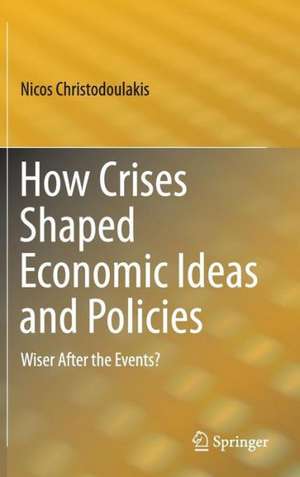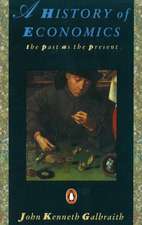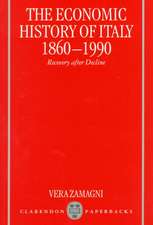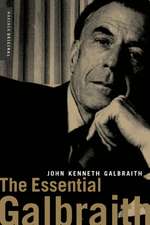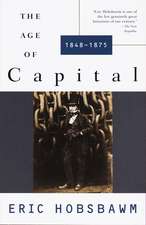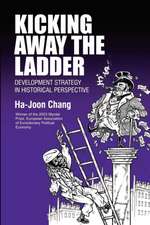How Crises Shaped Economic Ideas and Policies: Wiser After the Events?
Autor Nicos Christodoulakisen Limba Engleză Hardback – 27 apr 2015
| Toate formatele și edițiile | Preț | Express |
|---|---|---|
| Paperback (1) | 384.86 lei 6-8 săpt. | |
| Springer International Publishing – 12 oct 2016 | 384.86 lei 6-8 săpt. | |
| Hardback (1) | 392.21 lei 6-8 săpt. | |
| Springer International Publishing – 27 apr 2015 | 392.21 lei 6-8 săpt. |
Preț: 392.21 lei
Nou
Puncte Express: 588
Preț estimativ în valută:
75.05€ • 78.57$ • 62.10£
75.05€ • 78.57$ • 62.10£
Carte tipărită la comandă
Livrare economică 07-21 aprilie
Preluare comenzi: 021 569.72.76
Specificații
ISBN-13: 9783319168708
ISBN-10: 3319168703
Pagini: 222
Ilustrații: XIII, 222 p. 2 illus.
Dimensiuni: 155 x 235 x 20 mm
Greutate: 0.51 kg
Ediția:2015
Editura: Springer International Publishing
Colecția Springer
Locul publicării:Cham, Switzerland
ISBN-10: 3319168703
Pagini: 222
Ilustrații: XIII, 222 p. 2 illus.
Dimensiuni: 155 x 235 x 20 mm
Greutate: 0.51 kg
Ediția:2015
Editura: Springer International Publishing
Colecția Springer
Locul publicării:Cham, Switzerland
Public țintă
ResearchCuprins
Preface.- 1 Introduction: Delusions and Lessons.- 2 Forms of Economic Theories and Crises.- 3 How Old are Economics?.- 4 Economic Crises and Practices in the Roman and Byzantine Era.- 5 Economic Theories and Practices in Medieval Europe.- 6 Economics before the Industrial Revolution.- 7 The Industrial Revolution and the Foundation of Classical Economics.- 8 Crises and Theories After the Industrial Revolution.- 9 From Accumulation to Distribution.- 10 The Great Crisis and the Theory of Keynes.- 11 Theories of Central Planning and the Socialist Crises.- 12 From Keynesian Economics to Stagflation.- 13 Development, Collapse and New Theories.- 14 Post 2008: Challenging the Foundations of Orthodoxy.- 15 Is there a Methodological Crisis in Economics?.
Textul de pe ultima copertă
This book explores how successful the various tenets of economic thought have been in prognosticating or remedying economic crises. Examining key episodes in economic history, from famines in antiquity to present-day financial collapse, the author finds that several theories failed to cope with a crisis and lost their academic impact. The author also presents cases in which major theoretical innovations were achieved after the experience of a crisis as well as cases where a completely new theory was needed to explain and face the events. This book will appeal to researchers and scholars interested in understanding how theoretical developments in economics are affected by real-world economic crises.
Caracteristici
Relates past economic crises to questions of modern economics Describes the intrinsic link between the development of economic theories and real-world crises Shows that both unquestioned belief and strong doubts in economic theories can be harmful to an economy
